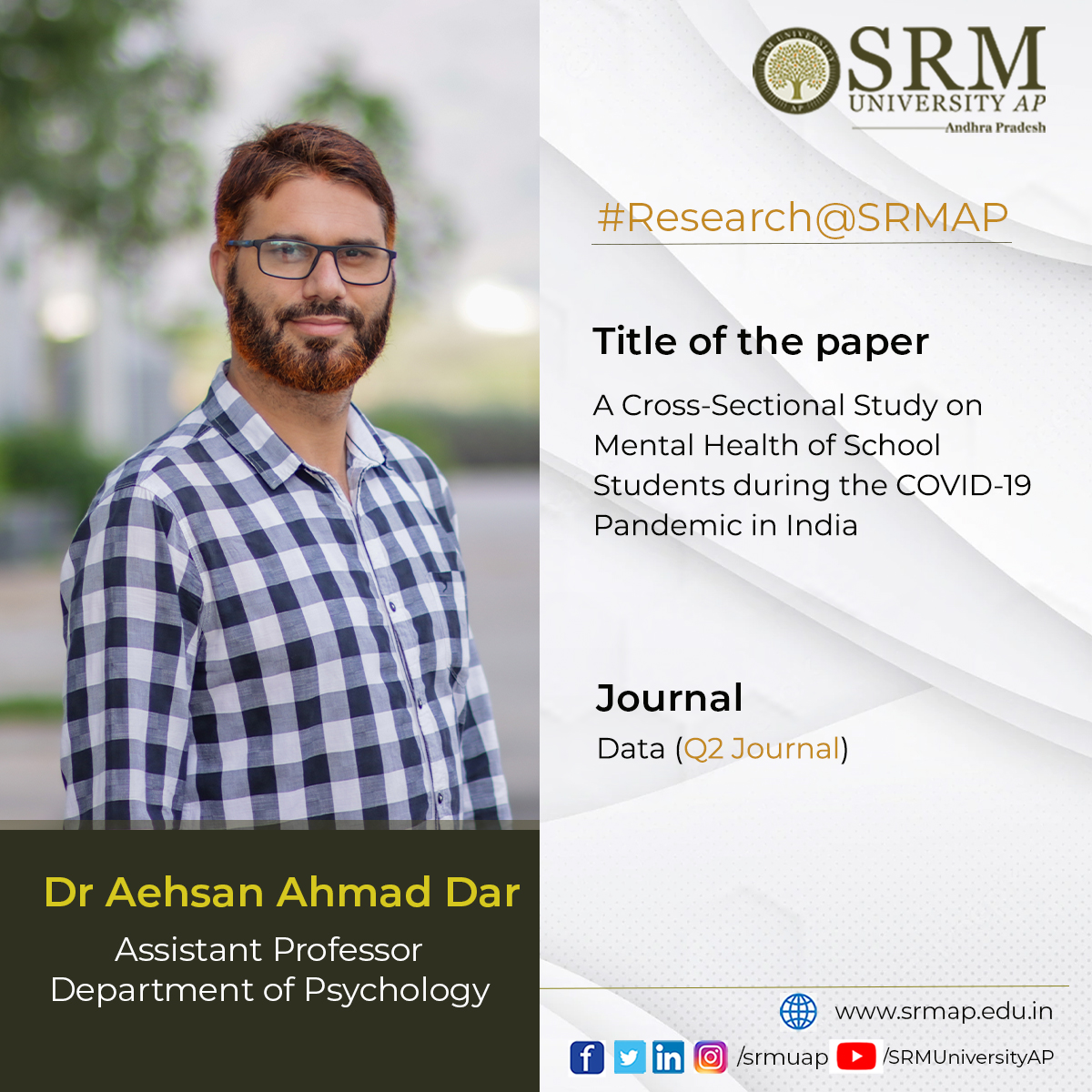
Dr Aehsan Ahmad Dar, Assistant Professor, Department of Psychology, published the article titled “A Cross-Sectional Study on Mental Health of School Students during the COVID-19 Pandemic in India” in the journal Data in collaboration with academicians from different universities across the country and abroad.
The present study estimated the mental health of school students during the COVID-19 pandemic. The findings revealed that the COVID-19 pandemic caused stress which increased the levels of anxiety and depression among the students. However, social support from family and friends was found to be a protective factor for mental health.
The findings of the research will serve as a reliable source of information for mental health professionals and policymakers to better understand the impact of the COVID-19 pandemic and other traumatic experiences on mental health. Therefore, necessary efforts are suggested to provide mental health support services to prevent the development of mental disorders.
Dr Aehsan’s future research plan is to study the mental health of youth and ascertain its risk and protective factors. About 19% of the world’s children live in India, which constitutes 42% of the total Indian population, and nearly half of these children are vulnerable and need care and protection. Due to various traumatic experiences, stress has increased among young people resulting in the development of various physical and mental disorders.
His research will focus on the pathogenic (posttraumatic stress disorder, depression, anxiety, somatization) and salutogenic (posttraumatic growth and resilience) consequences of trauma to help the youth withstand adverse experiences to develop psychological competence. The research will provide insights into the mental health status of youth that would be helpful for the administration, policymakers, and other voluntary organizations to understand effective ways to devise and implement the best intervention programs for maximizing mental health protective factors and minimizing its risk factors.

